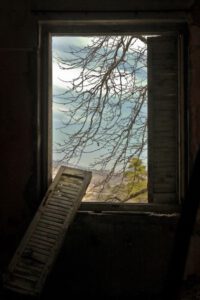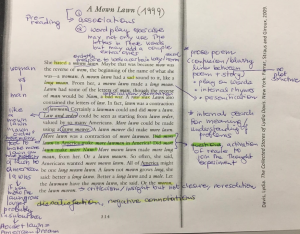
I’m named after my grandfathers: Johann and Juan. My name is Johanna. Throughout my life, I’ve met many Johannas. At my university alone, I know nearly a dozen. It’s led to funny and to confusing situations, but it’s always been something to connect over. On their own, my names are nothing to brag about: Johanna. Gabriela. Hernández. Schäfer. Johanna and Schäfer are common names in Germany, Gabriela and Hernández are typical Peruvian names. Only together are they special. Only together are they me. But – had I been born 50 minutes earlier, my name might have been Paula (find out why at the end of the poem).








